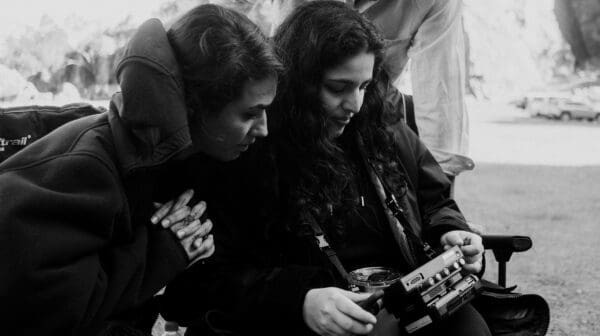
Finding New Spaces Together
‘Vádye Eshgh (The Valley of Love)’ is a collaboration between Second Generation Collective and Abdul-Rahman Abdullah weaving through themes of beauty, diversity and the rebuilding of identity.
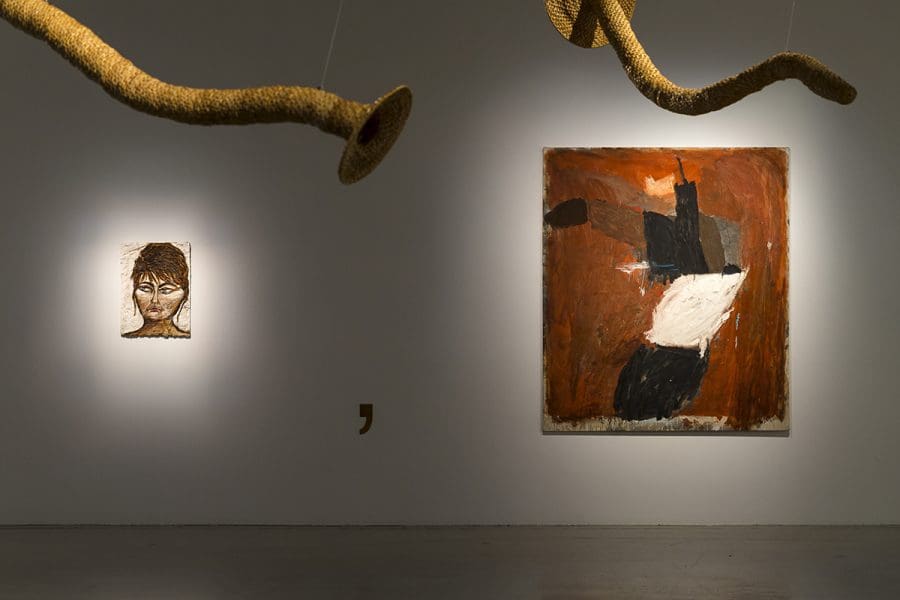

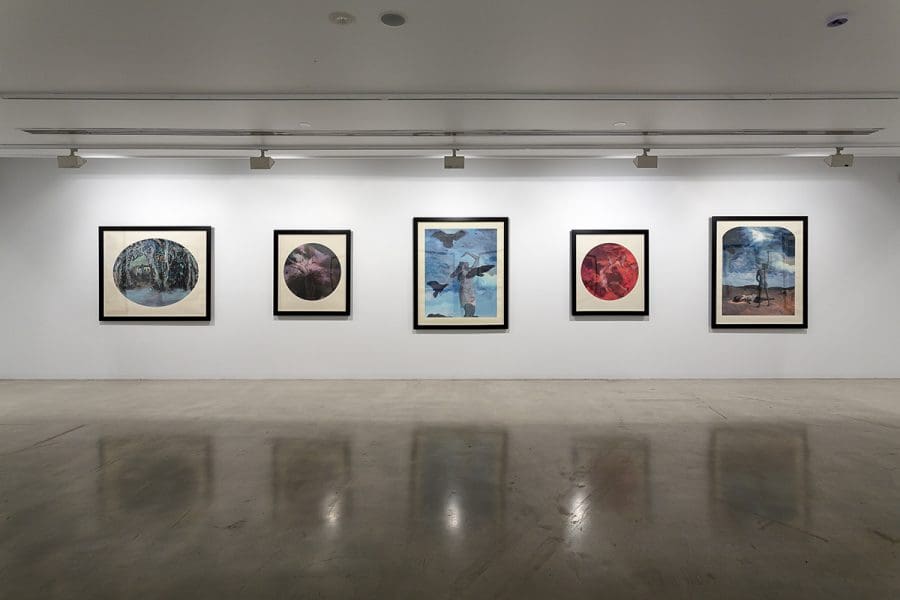
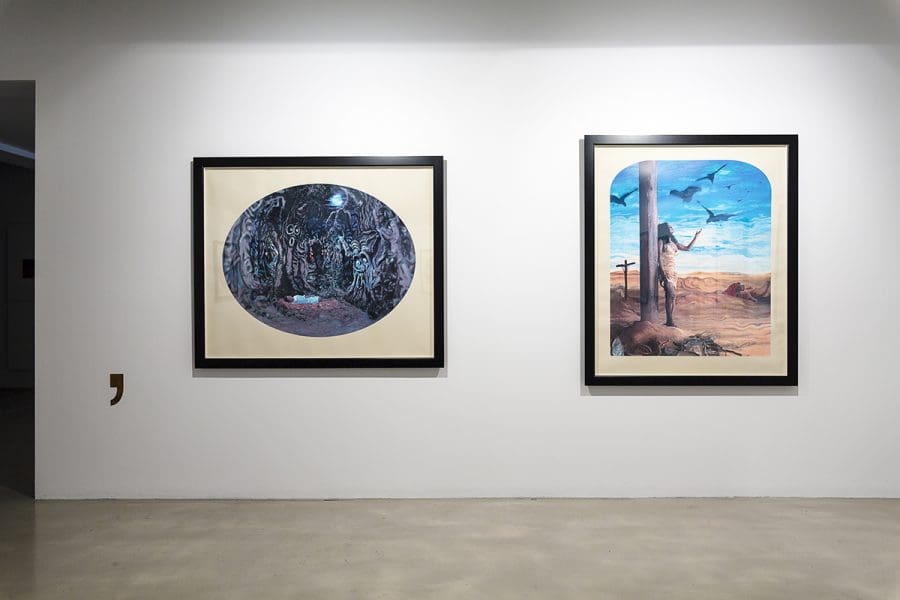
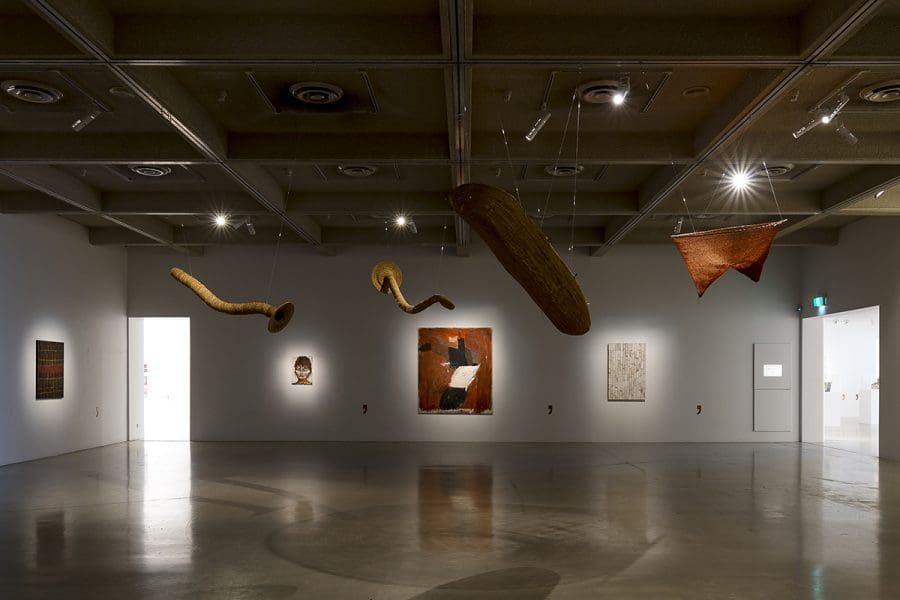
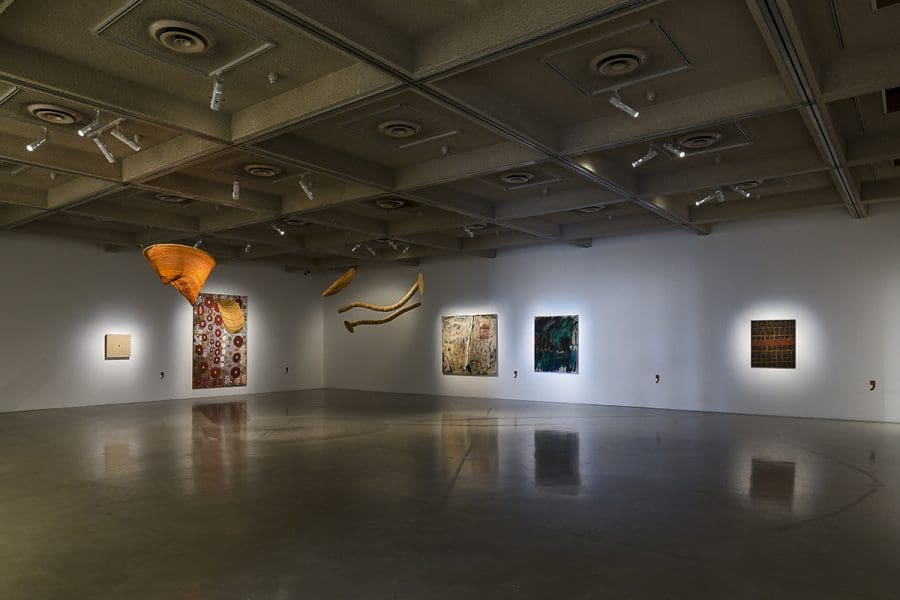
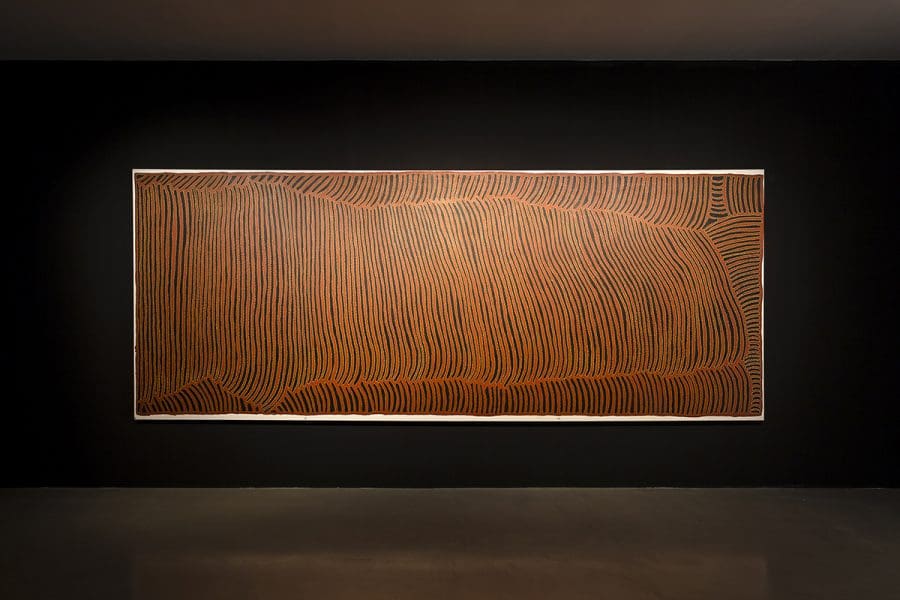
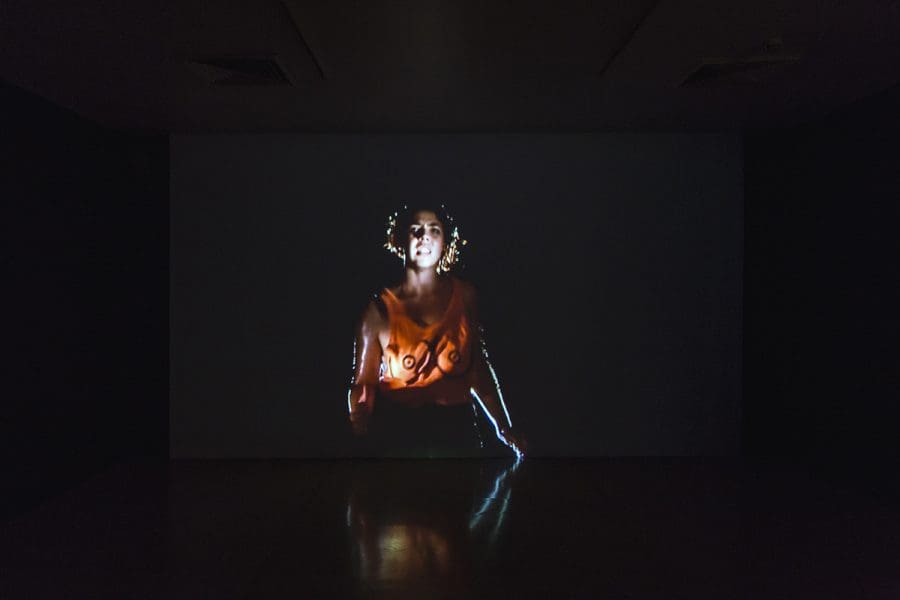
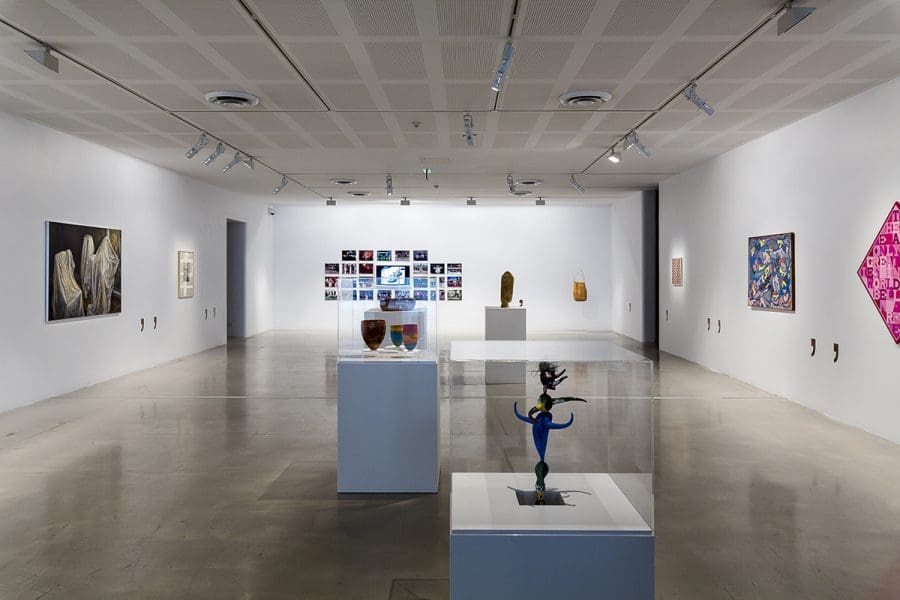
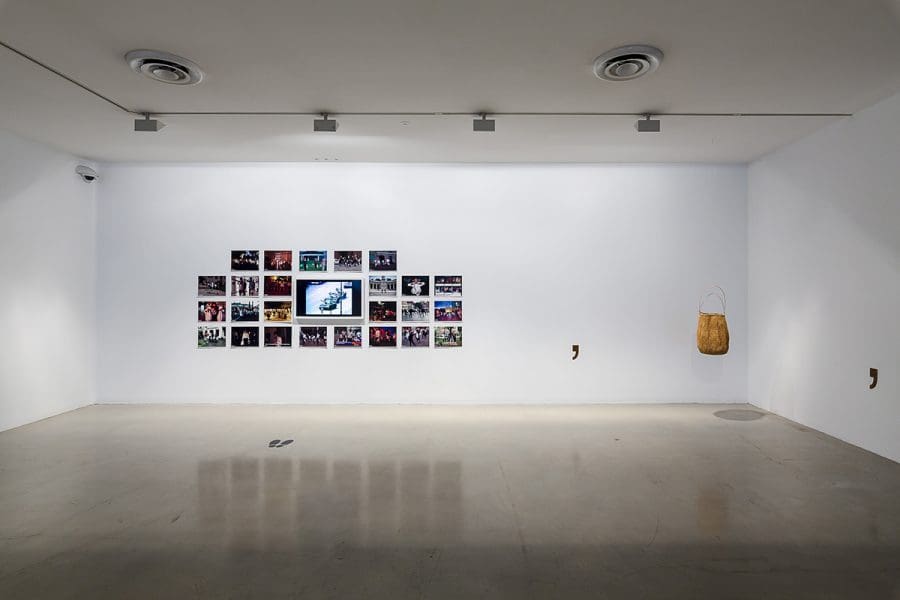
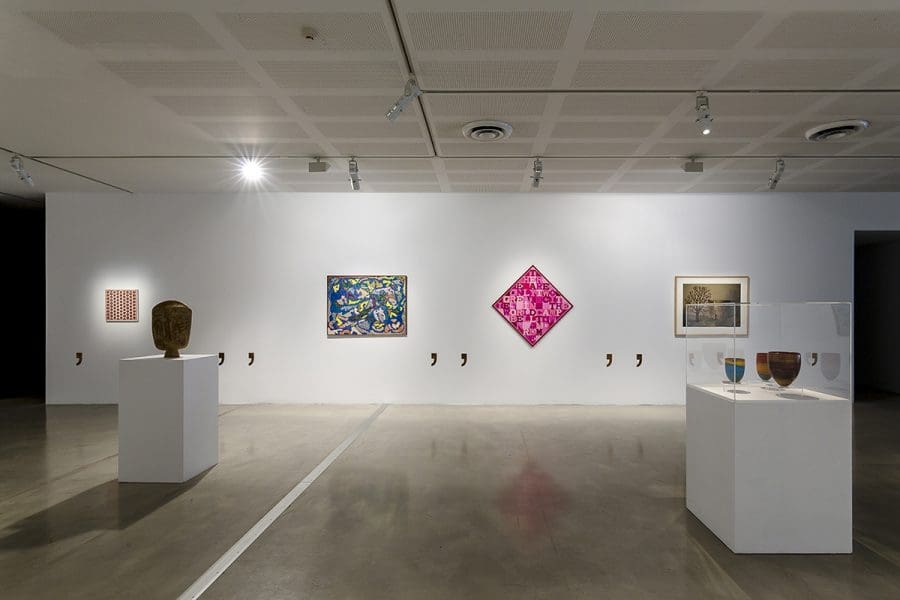
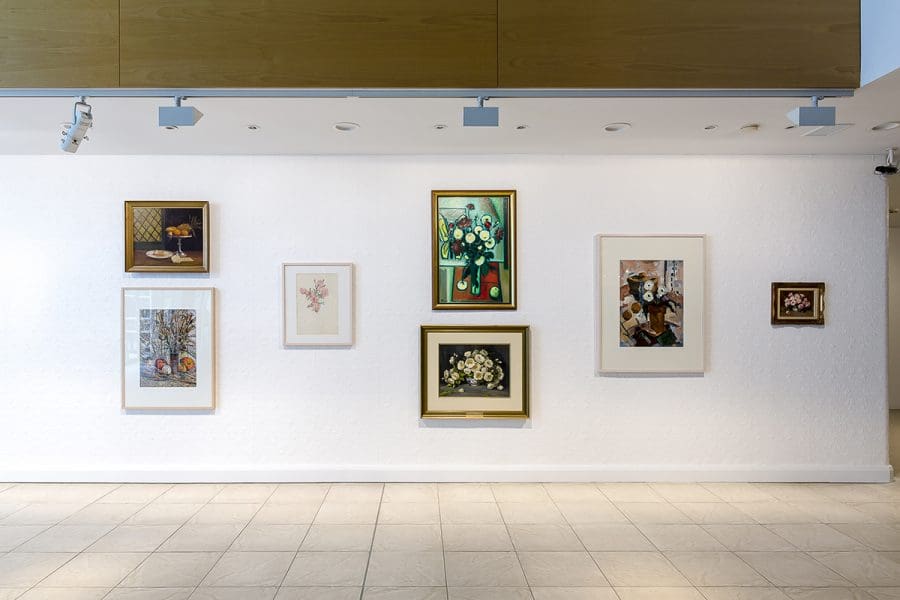
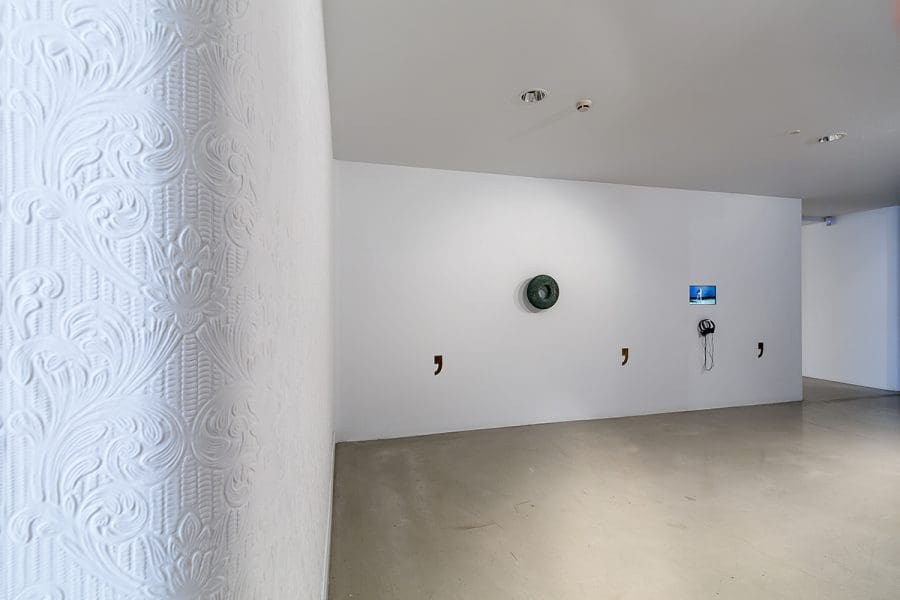
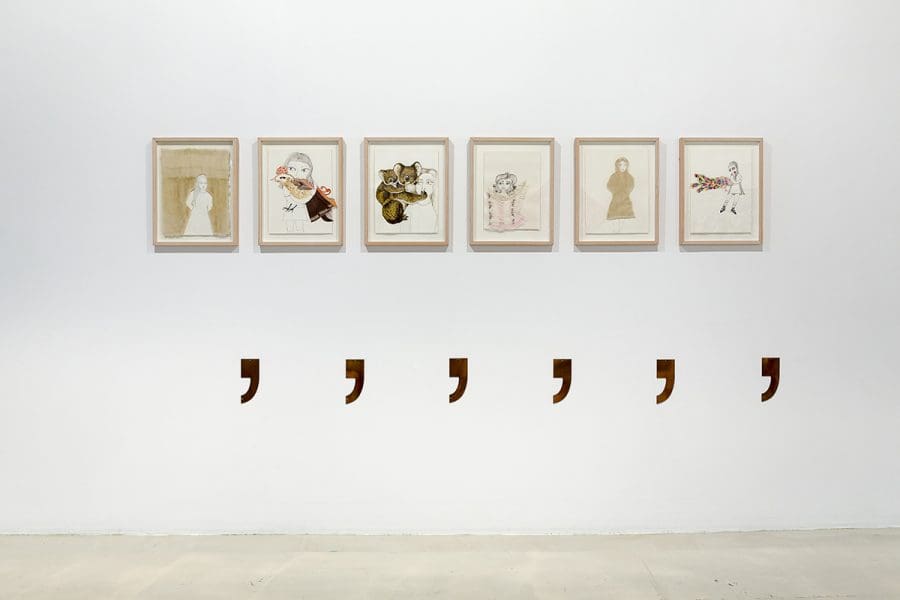
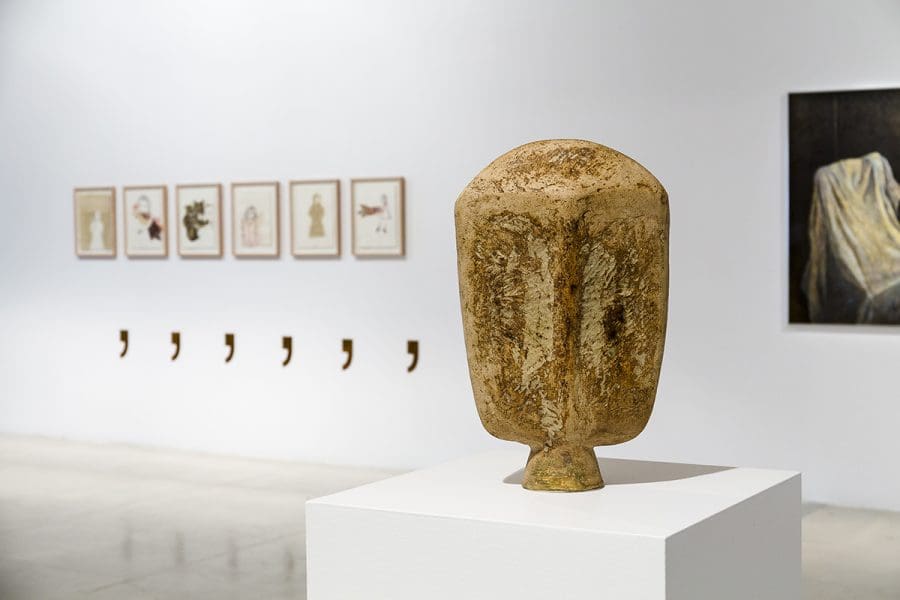
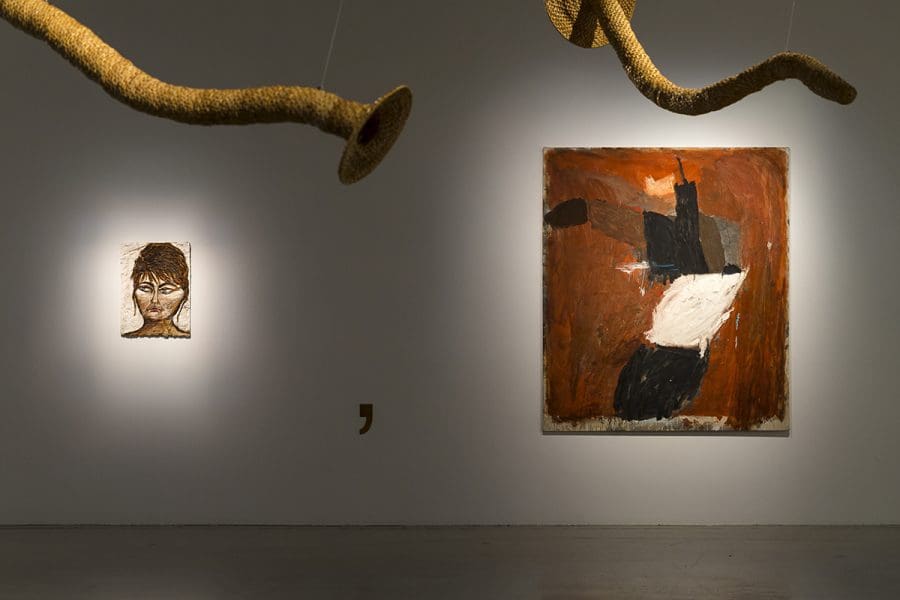
“We are not consultants” declares the feminist group CoUNTess in their commissioned artwork for Borrowed Scenery, a group exhibition now at Campbelltown Arts Centre in Sydney. Artist Elvis Richardson, the heart of CoUNTess has been auditing and reporting on the art world for years. Now joined by Amy Prcevich and Miranda Samuels, the group moves its commentary in a new direction with 100% of the artists in Borrowed Scenery are women, 2018. Part of the work is a flyer inserted into the exhibition room sheet, and the other is a series of 52 comma-shaped brass plaques, interspersed throughout the exhibition and installed around knee height.
The commas are a fascinating addition to an exhibition of female artists drawn from the Campbelltown Arts Centre collection. At first, they read like wall texts – something to be glossed over – but their presence soon becomes more disruptive. In places there are strings of them, like words have been taken out and parts of a sentence have gone missing. The plaques begin to act like memorials, reminding us of all the women whose work deserved to be in collections like this one, but who never entered this form of art world record. The CoUNTess flyer also calls these women to mind, reporting research findings like “0% of artists in the CAC collection were counted as non-binary.”
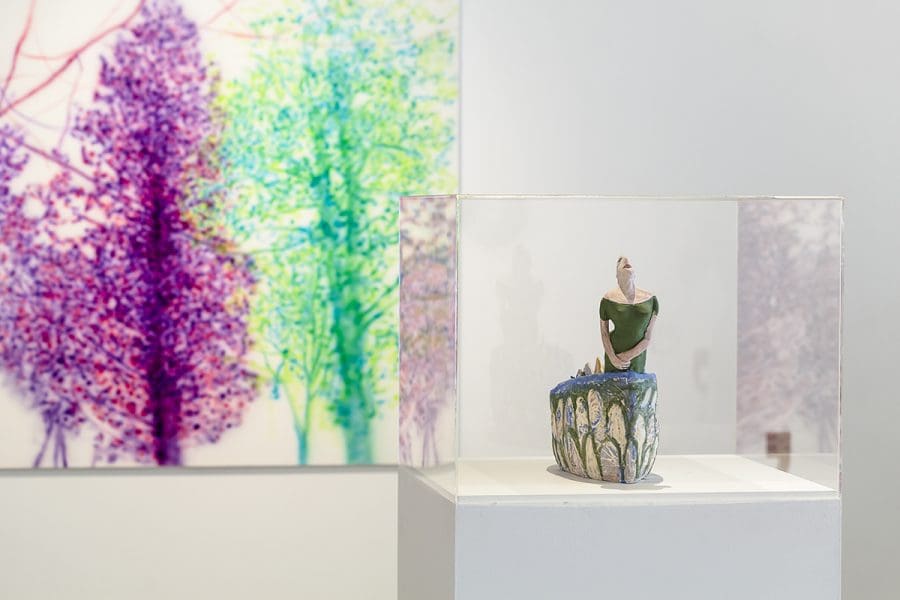
The CAC collection started in 1988 but Borrowed Scenery begins much earlier, with a still life painted around 1900 by May Bocking. The first wall of the exhibition, with its still lifes and roses, provides context for the rest of the exhibition, highlighting the changing roles and expectations on female artists. But the exhibition is not chronological. The central gallery space is shared by Marea Gazzard’s Totem, 1969, Pat Larter’s Flash Blue, 1993 and an untitled woven basket by Manupa Butler, 1997. Deborah Kelly’s video and photographic series Tank man tango: a Tiananmen memorial, 2009, dominates this space. The work, which records performances of a choreographed dance with two plastic bags, is all the more powerful 10 years on, in this the 30th anniversary year of the Tiananmen Square massacre.
A five-metre-wide painting by Gloria Petyarre, Untitled, Awelye, 1995, is given its own room and a dramatic install. Further into the exhibition, woven forms and eel traps by Joyce Moate, Regina Wilson and Yvonne Koolmatrie are suspended from the ceiling. They share a space with a joyful collaborative work by Makinti Napanangka, Narputta Nangala and Eunice Napanangka, Untitled, Karrkuruntinytja (Lake Macdonald), 1996, which sings of water and trees and life.
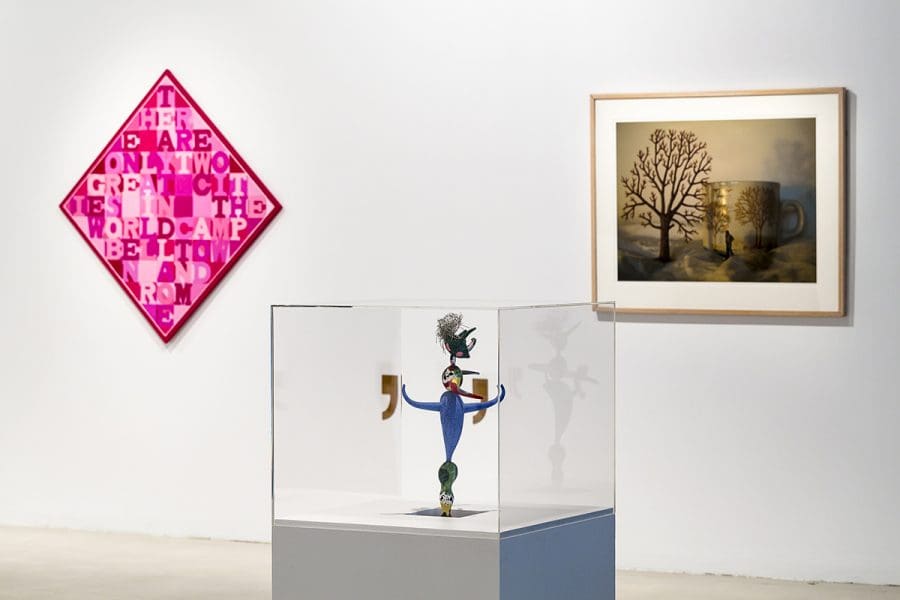
There is no shortage of drama in Borrowed Scenery, which is perhaps the point—to take female artists out of scenes shaped by the male gaze and to place them on their own stages.
Perhaps the most theatrical moment in Borrowed Scenery is Runaway, a 2008 video by Barbara Cleveland, a group comprising Diana Baker Smith, Frances Barrett, Kate Blackmore and Kelly Doley. In this cinematic sequence women are shown running away from violence. Lights flash on their bodies like gun fire and red paint splatters on their skin. The work references many clichés around on-screen violence and the male gaze, but if there’s a freezeframe to end on, it’s their vision of a woman running hard, slogging it out.
Do the commas create the expectation that Borrowed Scenery will return forgotten artists to the stage? There are a few artists, like Shay Docking, who have perhaps receded from view, but the exhibition mostly presents artists who are currently practising and exhibiting, such as Elaine Campaner, Savanhdary Vongpoothorn, Hilarie Mais, Elisabeth Cummings, Aida Tomescu, Ildiko Kovacs, Tracey Moffatt, or who are far from forgotten, including Katthy Cavaliere, Bronwyn Oliver, Rosalie Gascoigne.
It might be more useful to read Borrowed Scenery as simply a celebration of talent and the diversity of individual practice. It’s an ambitious group exhibition and an uplifting one.
There will be a closing event for Borrowed Scenery on International Women’s Day, 8 March, 6-8pm.
Borrowed Scenery
Campbelltown Arts Centre
2 January – 10 March